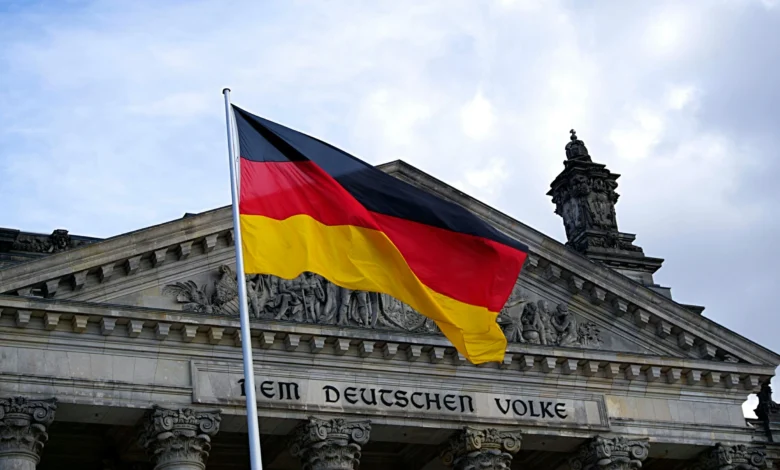Understanding Political Efficacy and Its Role in Society

Political efficacy plays a crucial role in shaping the health of democratic systems. It determines how individuals engage with politics, perceive their influence over decision-making processes, and contribute to democratic stability. But what exactly is and why does it matter?
This post unpacks the concept of its significance, the factors that influence it, and strategies to enhance it. By the end, you’ll gain a comprehensive understanding of this pivotal concept and why fostering political efficacy is vital for democratic societies to thrive.
What Is Political Efficacy?
Defining Political Efficacy
Political efficacy refers to the belief individuals hold about their ability to influence political processes and how much they trust the system to respond to their voices. It’s a measure of how empowered citizens feel to participate in shaping their government and policies.
There are two key components:
- Internal Political Efficacy: This relates to an individual’s confidence in their own political knowledge and ability to affect change.
- External Political Efficacy: This addresses the perception of how responsive political institutions are to public needs and concerns.
Why Political Efficacy Matters
forms the backbone of healthy democracies. When citizens feel their voices matter, they are more likely to vote, participate in protests, or join political discussions. On the other hand, low political efficacy can lead to apathy, disengagement, and mistrust in political systems.
For societies that hope to remain robust and democratic, fostering political efficacy is non-negotiable.
Factors Affecting Political Efficacy
Education and Socioeconomic Background
One of the strongest predictors of is socio-economic status (SES). Higher levels of education tend to correlate with greater internal as individuals feel better equipped to understand political systems. Similarly, those with higher incomes often have more access to resources and networks to influence policy decisions.
On the flip side, disadvantaged groups—due to systemic barriers or lack of access to education—may experience lower . Ensuring all citizens have equal opportunities to understand and shape governance is a challenge many democracies continue to face.
Media and Political Institutions
The role of media in shaping cannot be overstated. The information (or misinformation) platforms provide heavily influences how individuals perceive their ability to create change. For instance, objective reporting can empower people with accurate data, while biased coverage might erode trust in institutions, damaging external political efficacy.
Likewise, political institutions themselves play a role. Transparent governance, citizen outreach programs, and participatory decision-making processes contribute to higher external efficacy. Conversely, corruption, exclusivity, and ineffective policy implementation can lead to disillusionment.
Measuring Political Efficacy
Internal vs. External Political Efficacy
Political efficacy is usually measured along two dimensions:
- Internal efficacy evaluates an individual’s self-perception of their political competence. For example, do they feel knowledgeable enough to vote or engage in discussions about policies?
- External efficacy gauges their understanding of how responsive institutions, leaders, and systems are to public demands.
Methods of Measurement
Researchers use surveys and studies to assess across various demographics. Questions typically examine people’s views on political accessibility, government responsiveness, and their personal ability to make political changes.
For instance, a question measuring internal efficacy might ask, “Do you feel confident understanding political issues?” On the other hand, external efficacy might involve questions like, “Do you believe elected officials care about what people like you think?”
These insights help policymakers and scholars identify gaps and opportunities for fostering greater political engagement.
The Impact of Political Efficacy

Political Participation and Engagement
High political efficacy encourages active participation in democratic processes. When individuals believe in their ability to make a difference, they are more likely to:
- Vote in elections.
- Attend town hall meetings.
- Advocate for causes that resonate with them.
Communities with high tend to witness higher civic engagement and more robust local governance.
Voting Behavior and Institutional Trust
also influences voting behavior. Individuals with high external efficacy often have trust in the system and are more likely to vote and support democratic institutions. Conversely, those with low efficacy may abstain from voting entirely, believing it to be futile.
This erosion of faith in institutions is a warning sign for democracies, as it can lead to widespread disengagement or extremism.
Strategies to Enhance Political Efficacy
Education and Awareness Campaigns
Investing in civic education is one of the most effective ways to improve internal Schools, universities, and community organizations can introduce courses and workshops that demystify political systems, explain rights and responsibilities, and encourage critical thinking.
Public awareness campaigns—targeted through social media or traditional channels—can also motivate individuals to engage with politics and dispel feelings of alienation.
Strengthening Civic Engagement
Encouraging grassroots movements and offering more opportunities for citizen participation can strengthen both internal and external efficacy. Strategies include:
- Open forums where community members can voice their concerns directly to policymakers.
- Volunteer programs focused on local governance or public affairs.
- Participatory budgeting initiatives that allow citizens to decide how public funds are allocated.
When people see tangible results from their involvement, their sense of efficacy naturally increases.
The Future of Political Efficacy
Challenges in a Changing World
The modern socio-landscape introduces new challenges for Polarization, misinformation, and declining trust in institutions are eroding both internal and external worldwide.
However, the digital age also presents opportunities. Online activism and digital democracy tools can empower individuals to take charge of issues they care about, bridging traditional gaps in accessibility.
An Opportunity for Growth
Amid these challenges, there’s hope. Governments, educators, and communities can collaborate to foster stronger By prioritizing transparency, inclusivity, and education, the future holds promise for more engaged, empowered citizens.
Build a More Engaged Society Together
isn’t a given—it’s built and nurtured through purposeful actions and inclusive strategies. By empowering individuals with the knowledge and resources to engage with politics effectively, we strengthen democracies and ensure they remain by the people, for the people.
What steps will you take to enhance in your community? Share your ideas and feedback—we’d love to continue this conversation.




